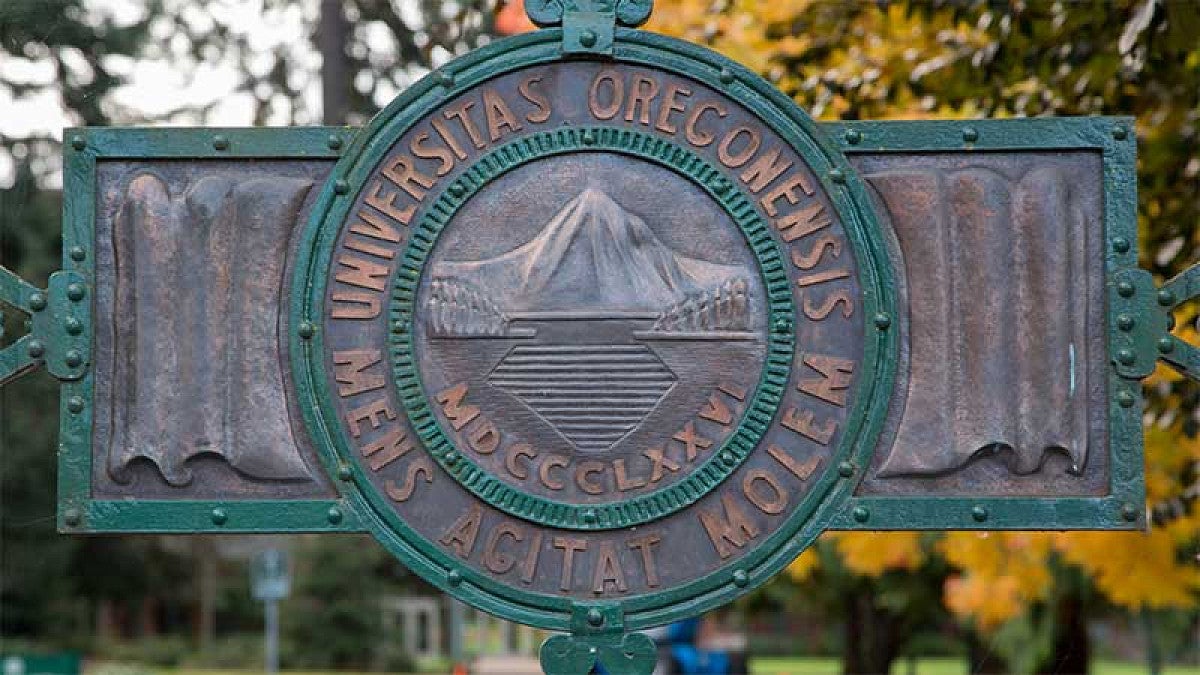The University of Oregon Board of Trustees received updates on the university’s ongoing response to COVID-19 and its expanded in-house testing program, along with reports from the UO Foundation and UO Information Services at its Oct. 29 meeting.
The meeting was the first of two ad hoc board meetings this term to supplement the board’s regular quarterly meetings. The second meeting will take place Nov. 13. The virtual meetings are reserved for presentations and board discussions, with no action items on the agenda.
On Oct. 29, President Michael Schill told trustees he was proud that the majority of UO students who returned to Eugene this fall have “seen the need to protect themselves and protect others,” through wearing masks, physical distancing and avoiding social gatherings.
Face mask usage on campus is between 90 and 95 percent, Schill said, according to observers who track that data on a regular basis.
“We’re working hard with our city and county partners to educate the remaining students who continue to gather on and off campus from time to time, both with and without masks,” he added. “We do have work to do there.”
The UO’s in-house COVID-19 Monitoring and Assessment Program has ramped up its capacity, so that it can now process up to 4,000 tests a week. After move-in testing for students in the residence halls that yielded “very modest numbers of positive cases,” Schill said, the university will offer significant testing opportunities to students and employees throughout the rest of term. The monitoring program has also received federal and state funding for targeted testing initiatives in Oregon outside the UO community, he added.
“This is why you have a great research university, for moments like this,” Schill said. “We have the facilities and research expertise to be able to serve the broader community…. That makes us feel that we’re fulfilling our mission.”
UO Foundation President Paul Weinhold provided trustees with an overview of the foundation’s different investment funds and the returns on those funds over the last decade. He also reminded the board that the UO moved in 2016 to stop all future investments in fossil fuel extraction.
Despite 10-year returns of almost 8 percent, the foundation’s investments grew by 1.2 percent over the last year, due in large part to the impact of the pandemic, Weinhold said.
“Endowments are managed for the long-term, and we’re in the top quartile for 10-year returns” among 800 peer institutions, he said. “But our one-year numbers were not good …. We’re expecting those returns to recover.”
Jessie Minton, the UO’s chief information officer, provided the board with updates on research technology and cybersecurity, as well as the university’s long-term Transform IT consolidation project.
The pandemic and the shift to more UO business being conducted online has heightened the need for additional IT support and new cybersecurity measures, Minton said, including two-factor authentication and self-phishing training initiatives.
“We have rethought how we can continue to move forward with cybersecurity and how can we continue to make progress even in the absence of new funding,” she said.
The board will hold its second ad hoc meeting Nov. 13 at 11 a.m. The topics of the meeting will be the Knight Campus for Accelerating Scientific Impact annual report, the UO’s fundraising campaign and fall enrollment and financial data.
The meeting will be livestreamed and also will be available via teleconference. That information, along with meeting materials, will be available on the board’s meetings webpage.
In addition, the board will hold listening session Nov. 17 at 2 p.m. The session will allow members of the campus community and the public to provide oral comment to trustees, since recent virtual meetings have been limited to written public comment due to logistics.
People interested in providing comment must register to do so. Priority will be given to UO students, faculty members and staff. Space is limited to ensure that those participating all have a chance to speak. If registrations exceed the time allotted for the listening session, the board will add another session and give priority to those people who initially registered.


